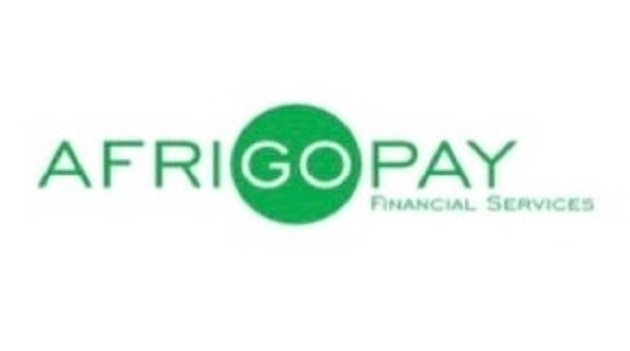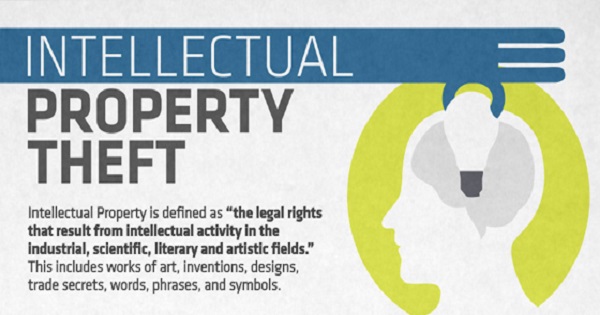News
AfriGO Drives Card Adoption with Instant POS Settlement Process

Afrigopay Financial Services Limited (AFSL) has unveiled a game-changing feature for its AfriGO card, introducing instant POS settlement for transactions.

The innovative enhancement is designed to provide merchants with immediate credit for transactions, greatly improving cash flow and minimizing the risks associated with delayed or disputed payments.
Dr. Ebehijie Momoh, the Managing Director and CEO of Afrigopay, at a press briefing held in Lagos, highlighted the significance of this development. “Our new instant settlement capability marks a pivotal moment for AfriGO.
“It will significantly improve transaction efficiency and establish AfriGO as a leading card scheme both in Nigeria and globally,” Momoh declared.
Explaining the advantages of this new feature, Momoh noted, “With the instant settlement system, merchants will see immediate funds in their accounts as soon as a transaction is completed at the POS terminal.
“This will streamline financial management for merchants by providing prompt access to funds, thereby supporting better cash flow and operational efficiency.”
The launch of AfriGO is a key part of the Central Bank of Nigeria (CBN) and Nigeria Inter-Bank Settlement System (NIBSS) initiative, which introduced the National Domestic Card Scheme in 2023. This initiative aims to enhance domestic transaction options and fortify Nigeria’s cashless economy.
Momoh commended the positive feedback received since AfriGO’s launch and emphasized that this latest upgrade is crucial for enhancing the card scheme’s global presence.
“The AfriGO card has been warmly embraced by users, and this latest feature is designed to boost our competitiveness on the global financial stage while meeting domestic needs.”
The introduction of instant POS settlement aligns with AfriGO’s mission to advance financial inclusion and provide affordable transaction solutions. “Our card scheme not only supports financial inclusion but also offers cost-effective transaction solutions for individuals and businesses.
By enhancing transaction security, ensuring data sovereignty, and providing better pricing in local currency, we are reducing interchange fees and alleviating pressure on the naira,” Momoh added.
Ugo Obasi, Chief Operations Officer of Afrigopay, underscored the importance of this home-grown solution and urged Nigerians to embrace innovations that drive economic growth.
“We are committed to leveraging technology and innovation to ensure that AfriGO remains competitive with global financial payment systems,” Obasi stated.
He also highlighted ongoing efforts to promote AfriGO’s benefits. “We are rolling out targeted campaigns to educate merchants and the public about our services.
“Our strategy includes comprehensive outreach to increase awareness and adoption of AfriGO. Additionally, we are exploring partnerships to expand our services to other African countries and beyond.”
With this groundbreaking enhancement, Afrigopay Financial Services Limited is set to redefine the standards for card transactions in Nigeria, fostering a more efficient and secure financial environment.
News
Nearly 90% of Organizations Prefer Outsourced or Hybrid Models for their SOC

Most companies choose to outsource at least part of their Security Operations Center (SOC), with a significant number adopting SOC-as-a-Service (SOCaaS), according to global research by Kaspersky.

This strategic move enables organisations to benefit from round-the-clock protection, ensure compliance with regulatory standards and leverage advanced cybersecurity solutions and qualified expertise that are often beyond their internal capabilities.
As cyberthreats become increasingly sophisticated, organisations are rethinking how they build and operate their Security Operations Centers. With this in mind, Kaspersky carried out a comprehensive global survey to identify the main motivations, strategic goals, and potential challenges associated with its planning and implementation¹.
The findings of this research revealed that 64% of companies plan to outsource part of their SOC, combining internal capabilities with external expertise.
Meanwhile, over a quarter of respondents (26%) are ready to fully implement an SOC-as-a-Service (SOCaaS) model. By contrast, only 9% plan to build their SOC entirely in-house, highlighting the growing challenges of maintaining round-the-clock monitoring and attracting qualified specialists.
SOC outsourcing enables organisations to delegate selected SOC functions or even the entire operational cycle to a trusted external provider. This approach can include a variety of services:
Design and architecture of the SOC.
Deployment and maintenance of SOC technologies.
Monitoring and analysis by external security analysts.
Consulting and training services.
Full SOCaaS delivery, where the provider handles detection, investigation and response around the clock.
Most companies prefer maintaining strategic tasks internally, whilst leveraging external teams and advanced technologies for operational and highly technical workloads. Among organisations planning to outsource SOC functions, the most commonly delegated tasks to third-party providers included solution installation and deployment (55%), solution development and provisioning (53%), and SOC design (47%).
When engaging external SOC specialists, companies also showed a clear preference for augmenting specific roles, with first-line analysts (61%) and second-line analysts (52%) being the most in-demand among external specialists. These figures illustrate that companies focus more on frontline and intermediate security tasks, such as monitoring and responding to threats.
Why do organisations choose SOC outsourcing?
The leading motivator for SOC outsourcing is the need for 24/7 protection (55%) – an operational requirement many internal teams cannot sustain alone. Another highly cited benefit is reducing workload on internal IT security specialists (47%), enabling teams to focus on strategic tasks.
Additionally, access to advanced solutions and technologies (42%) and external support to ensure compliance with regulatory requirements and standards (41%) further drive the decision to outsource, highlighting the value of specialised expertise and cutting-edge tools such as XDR, MDR, MXDR and others.
Budget optimisation is important for only 37% of companies – indicating that the primary value of outsourcing lies in improved protection, not just cost savings.
“The trend towards outsourcing SOC functions, whether fully or partially, is primarily driven by the necessity for enhanced operational focus and strategic agility. By shifting routine and technical tasks externally, organisations are able to concentrate on high-value activities such as strategic decision-making and orchestrating responses to sophisticated threats.
“Moreover, this approach often results in considerable cost efficiencies, allowing for optimised resource allocation. Ultimately, this model transforms the SOC into a critical strategic capability, directly contributing to business continuity,” comments Sergey Soldatov, Head of Security Operations Center at Kaspersky.
News
DHQ Indicts Brigadier General Abubakar Sadiq, 15 Others in Alleged Coup Plot againt Tinubu

Defence Headquarters (DHQ) has made public the full names of 16 officers of the Armed Forces of Nigeria indicted by a Special Investigative Panel over alleged serious misconduct, including an alleged coup plot against President Bola Tinubu.

The officers suspected to be involved in the coup plot include a brigadier general, a colonel, four lieutenant colonels, five majors, two captains, a lieutenant, a lieutenant commander and a Squandron Leader.
Major General Samaila Uba, director of Defence Information, disclosed this on Monday, stating that the panel had concluded its investigation and established that the affected officers had cases to answer.
According to him, the indicted officers will face a military Court Martial in line with established procedures and existing regulations.
Major Gen. Uba said the probe examined the circumstances surrounding the conduct of the officers and identified actions “inconsistent with the ethics, values and professional standards expected of members of the Armed Forces of Nigeria.”
He stressed that the exercise was purely disciplinary and aimed at preserving internal discipline, cohesion and operational effectiveness, adding that the Armed Forces remain loyal to the Constitution and Nigeria’s democratic order.
- Brigadier General Musa Abubakar Sadiq (Nasarawa, 44th Regular Course)
- Colonel M. A. Ma’aji (Niger, 47th Regular Course)
- Lieutenant Colonel S. Bappah (Bauchi, 56th Regular Course)
- Lieutenant Colonel A. A. Hayatu (Kaduna, 56th Regular Course)
- Lieutenant Colonel Dangnan (Plateau, 56th Regular Course)
- Lieutenant Colonel M. Almakura (Nasarawa, 56th Regular Course)
- Major A. J. Ibrahim (Gombe, 56th Regular Course)
- Major M. M. Jiddah (Katsina, 56th Regular Course)
- Major M. A. Usman (Federal Capital Territory, 60th Regular Course)
- Major D. Yusuf (Gombe, 59th Regular Course)
- Major I. Dauda (Jigawa, DSSC 38)
- Captain I. Bello (DSSC 43)
- Captain A. A. Yusuf
- Lieutenant S. S. Felix (DSSC)
- Lieutenant Commander D. B. Abdullahi (Nigerian Navy)
- Squadron Leader S. B. Adamu (Nigerian Air Force)
News
Court Fines Airtel N210m for Unauthorised Use of ‘Nigeria Go Survive’ Song

Justice Ibrahim Ahmad Kala of the Federal High Court, Lagos, on Monday awarded a total of N210 million in damages against Airtel Networks Limited for copyright infringement arising from the unauthorised use of a musical work titled “Nigeria Go Survive.”

The award comprises N200 million as general damages and N10 million as costs.
In addition to the monetary award, the court issued mandatory and perpetual injunctions restraining Airtel, its management, agents, servants, privies, successors-in-title and assigns from reproducing or further using the musical work, or any substantial part of it, for advertising, promotion, telemarketing, or other business purposes without the licence or authorisation of the copyright owner.
Justice Kala specifically ordered Airtel to remove “Nigeria Go Survive” from its list of songs used for advertising, business, telemarketing and promotional purposes across its network with immediate effect.
The judge held that Airtel’s use of the song without licence or authorisation amounted to restricted acts under the Copyright Act and constituted an infringement of the plaintiff’s copyright.
The judgment was delivered in suit No: FHC/L/CS/1822/2022, filed by Veno Marioghae Mbanefo, producer of the song.
In resolving the sole issue for determination, the court held that the plaintiff proved her case on the balance of probabilities.
Justice Kala noted that a perpetual injunction is granted after infringement has been established and is intended to protect the proprietary rights of the copyright owner and restrain continued infringement.
Accordingly, the court made the following orders: “That Airtel’s unauthorised use of “Nigeria Go Survive” for advertising, promotion and telemarketing amounts to copyright infringement.
“Mandatory injunction prohibiting Airtel from reproducing or using the musical work, or any substantial part of it, for business and promotional purposes.
“Perpetual injunction restraining Airtel from any further unauthorised use of the work.
“General damages N200 million awarded to the plaintiff for losses suffered as a result of the infringement. And N10 million awarded in favour of the plaintiff, considering the duration of the case, legal representation, expenses incurred, and the current value of the naira.
In the writ of summons filed by her legal team led by Clement Onwvenwunor, SAN, the plaintiff sought, among other reliefs, declarations that Airtel’s use of the song without attribution, licence or authorisation breached her statutory rights under Section 12 of the Copyright Act, Cap. C28, Laws of the Federation of Nigeria, 2004.
She also claimed substantial damages for copyright infringement and, in the alternative, requested an order directing Airtel to render an account of profits allegedly made from the infringement under the supervision of the Nigerian Communications Commission (NCC).
Airtel Networks Limited, represented by counsel led by Babatunde Amoo, urged the court to dismiss the suit.
However, after reviewing the exhibits and submissions of counsel, Justice Kala resolved all issues in favour of the plaintiff.
The court refused the plaintiff’s alternative prayer for an account of profits but granted all substantive reliefs relating to infringement, damages and injunctive orders.

 News2 days ago
News2 days agoLIRS to Invoke NTAA to Recover Unpaid Taxes from Bank Accounts, Others

 News2 days ago
News2 days agoAnambra Cuts Monday Pay to Kill Sit-at-Home

 E-Financial2 days ago
E-Financial2 days agoFirst Asset Management Receives Upgraded Ratings from Agusto &Co and DataPro

 General News2 days ago
General News2 days agoNigeria Treats Religious Violence as Attack on State – NSA Ribadu

 E-Financial2 days ago
E-Financial2 days agoNIBSS, Others Flag 13,417 Nigerian Fraudsters on Person of Interest Portal

 E-Financial2 days ago
E-Financial2 days agoCBN Prepares Fresh Debit Card Rules to Improve ATM Services

 News1 day ago
News1 day agoTech Executives Double Down on AI, Talent and Adaptive Strategies to Lead in the Intelligence Age

 General News1 day ago
General News1 day agoWEBINAR: Techeconomy Business Series Hosts Experts from MTN, Interswitch, BusinessPlus, others this Wednesday














